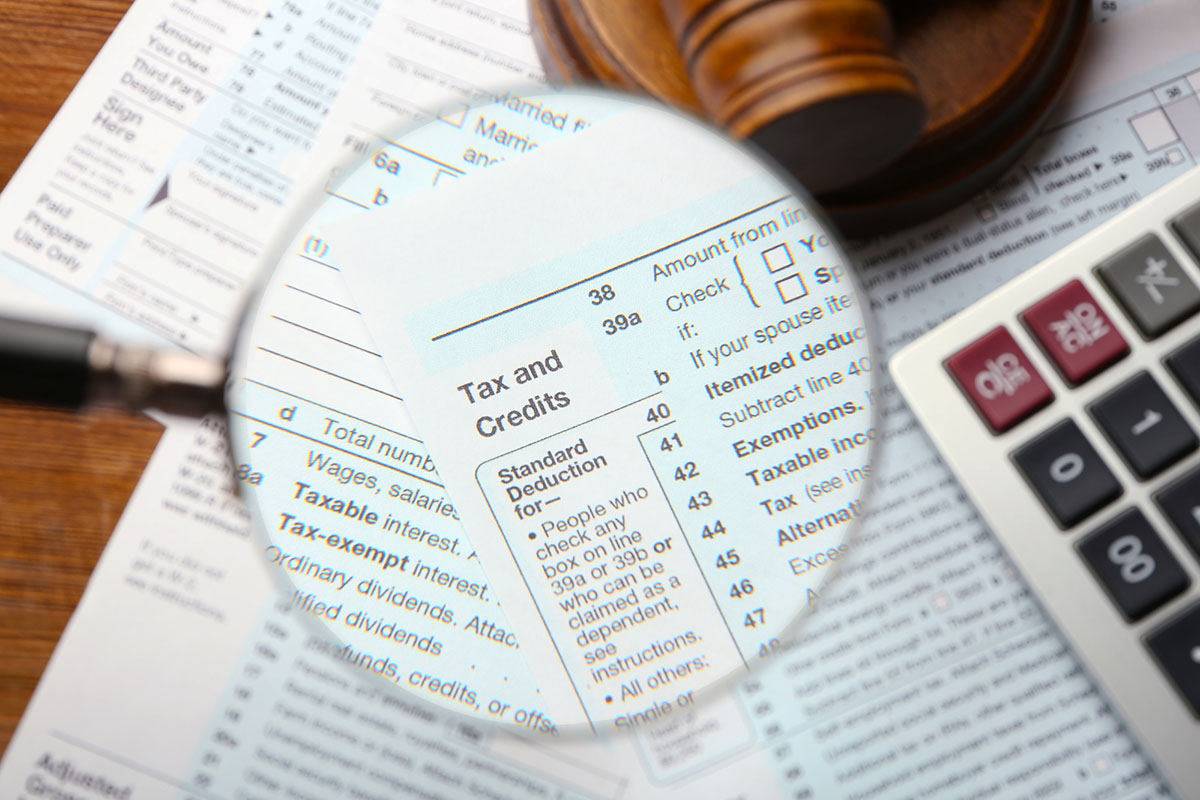
Unfiled Tax Returns
Procrastination: It is something we all do at one time or another. Some people take procrastination to the extreme, putting themselves in risky situations. Those who delay or fail to file tax returns are no exception – especially if it goes on for years. While millions of people fail to timely file their taxes, those with unfiled tax returns – known by the Internal Revenue Service as “Non-Filers” – face both civil and criminal consequences. These repercussions can be worked through and resolved if addressed proactively. However, if unfiled tax returns go ignored or, worse yet, more delinquencies occur, the chances for financial ruin and both civil and criminal penalties, including incarceration, will escalate. Crepeau Mourges has handled many matters involving Non-Filers in the past. We understand compliance requirements, and compliance programs, and can navigate the path to address both federal and state tax issues. Our experience can help you to put these problems behind you, put an end to unwanted stress, and minimize the financial effects in the process.
Many taxpayers put off their tax filings because they either cannot pay, they believe their tax return is too complicated, or they think a filing will only trigger an audit of prior unfiled returns. None of these are good reasons to procrastinate or avoid addressing tax requirements. For starters, the most significant penalties typically accrue for failing to timely file a tax return – not for failure to pay. Many taxpayers needlessly add 25% or more in penalties as a result, at a rate of 5% per month. (In the most egregious cases, this penalty can be applied at up to 75% of the assessed tax.) And the Internal Revenue Service and state agencies are more willing than ever to provide accommodating payment options, such as installment agreements, Offers in Compromise, and others.
And while some taxpayers may have complicated issues with their tax returns, these challenges are not insurmountable. With proper guidance, a tax return can be completed and prepared. Even if records are not in order, Crepeau Mourges can assist to prepare a tax return reflecting a reasonable reconstruction of income and expense items that complies with tax laws and regulations. The Internal Revenue Service even has beneficial administrative policies that allow taxpayers to typically file only a limited number of returns to achieve compliance.
Finally, the filing of a tax return will almost never – on its own – result in the examination of prior returns, whether filed or not. Instead, the taxing authorities have become more adroit at using technology and data mining to examine and pursue non-filers. In a best-case scenario, the Internal Revenue Service will conduct an audit and will prepare a “Substitute for Return” based on available information that will likely overstate taxable income and eliminate deductions. Without providing a return or responding, the Internal Revenue Service has wide latitude to make an assessment – the basis for many is unreasonable and substantially inflates tax. Thereafter, it will apply all applicable penalties and will try to collect on the assessment by filing notices of tax lien, by serving levies, and by garnishing wages and Social Security payments. Reactively addressing these issues, whether in defense of an audit, in an administrative appeal, or in tax litigation, will only cost more to resolve.
In a worst-case scenario, continuing non-filing will lead not only to the assessment of significant taxes and penalties, but also criminal charges for willful failure to file or tax evasion. Tax evasion is a felony that carries a hefty fine and up to 5 years of incarceration. Aside from the substantial cost of defending and litigating a criminal tax prosecution, the Internal Revenue Service will follow suit and frequently conduct a lengthy audit. Taxpayers in this situation face a double whammy and can be put in financial despair or bankrupted. (However, in many of these cases, bankruptcy will not discharge the tax liabilities either.)
If you are concerned about unfiled tax returns, or unpaid taxes, or cannot deal with a lingering tax issue, you should contact the experienced attorneys at Crepeau Mourges. We can help to put your problem into perspective and get you on track to resolving your tax issues. Don’t go it alone or wait another day to deal with this problem.
Getting Ready for Your First Meeting with Your Lawyer
Preparing for an initial meeting with a Hanover, MD unfiled tax returns lawyer can be a daunting task, but having all the necessary documents and information ready beforehand will help make your appointment go as smoothly as possible. Learn more about what you’ll need for this meeting from the paperwork you need to bring to the type of questions you should ask. Then, when you’re ready, contact an attorney at Crepeau Mourges today and schedule your first appointment.
The Basics
If you need legal help dealing with an unfiled tax return, it is important to be prepared for your first meeting with your lawyer. Knowing what to expect and how to prepare can help you feel confident and secure when discussing your situation with a legal professional. Here are the basics of getting ready for your first meeting with your lawyer:
- First, you should make sure you have all of your paperwork in order. This includes any documents that you have related to your unfiled tax returns, such as financial statements, receipts, and other supporting documents. You should also make sure that you have a list of questions that you want to ask your lawyer.
- Next, make sure you understand the fees associated with the legal services you will be receiving. Ask your lawyer what their fees are and what payment plans they offer. It is also important to be aware of any court costs or other expenses that may come up throughout the process.
- Finally, make sure you bring any supporting documents and evidence that you think could help prove your case. This could include bank statements, receipts, and other proof that could support your case. Be prepared to answer questions about your finances, tax returns, and other matters related to your case. Having all of this information ready to present to your lawyer can make the process go smoother.
What to Expect
When you meet with a Hanover unfiled tax returns lawyer it’s important to be prepared and have an understanding of what to expect. During the meeting, your lawyer will review the details of your case and will provide you with an overview of the process. Your lawyer will ask you questions about your case, and they may also ask for supporting documents. Be sure to bring any relevant documents, such as previous tax returns, financial records, and other information. Your lawyer will also review any potential consequences associated with filing late or not filing taxes at all. It’s important to understand that the meeting is confidential, so feel free to be honest and open about the details of your case. Your lawyer should provide you with a detailed explanation of how they can help you and what the timeline for your case might look like. At the end of your meeting, your lawyer should provide you with a plan of action and a timeline for completion. Be sure to ask any questions you may have and be sure to understand the next steps before leaving the meeting.
Now that you know what to bring and what to expect, contact a Hanover unfiled tax returns lawyer at Crepeau Mourges for your first appointment.


